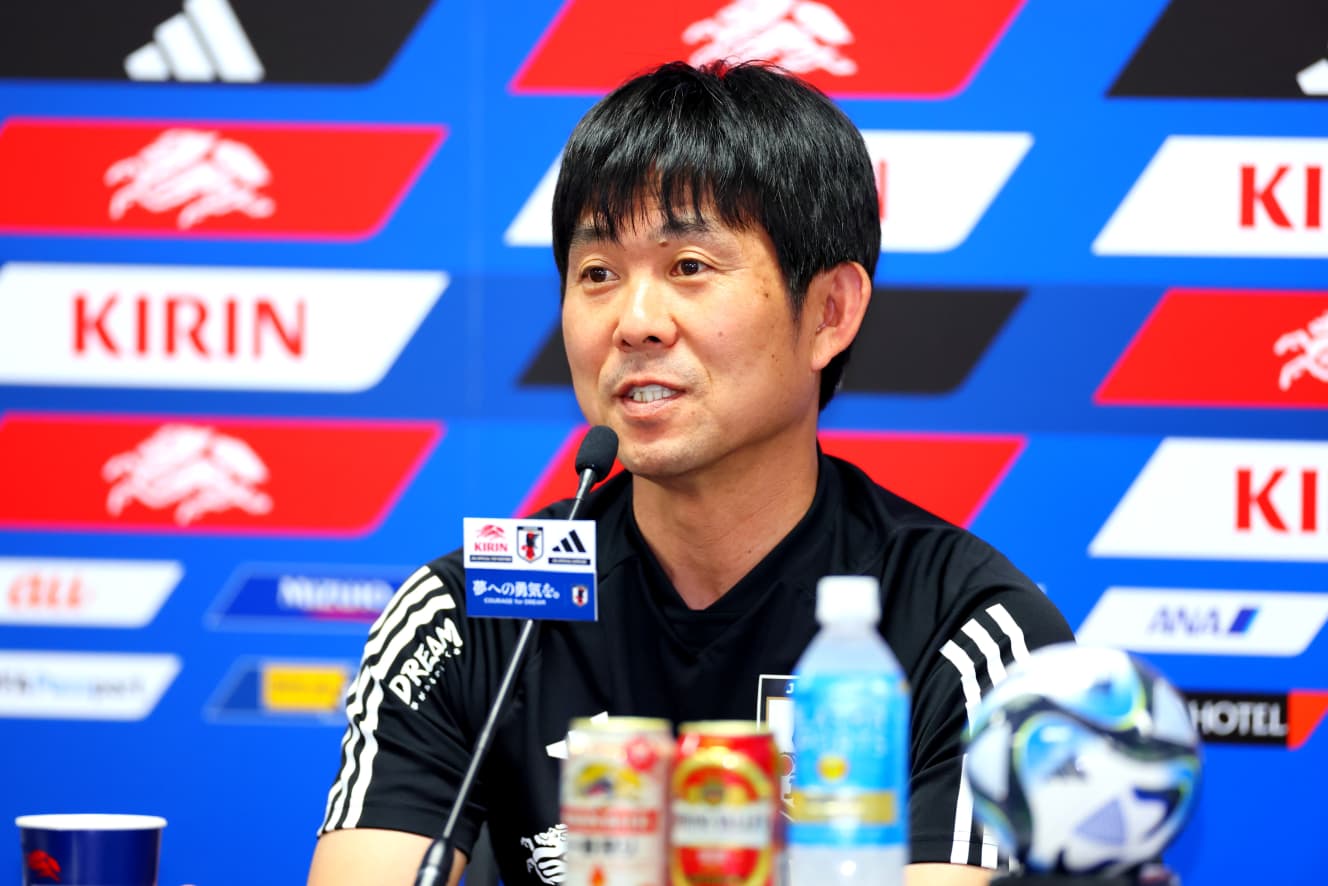World Cup Winners Struggle to Organize Friendly Matches Even with Back-to-Back Victories over Germany Why Japan’s Moriyasu Japan is Not Flooded with Offers

The Moriyasu Japan national soccer team won its two consecutive matches against Germany and Turkey on its September tour of Europe. The team won the “guillotine match” that led to the dismissal of the national coaches of two European countries in quick succession, and they also moved up one place in the latest world rankings to 19th place. This is the first time in 11 years, since January 2012, that he has climbed to the top 10. This rapid rise should have led to a flood of offers for friendly matches, but Moriyasu Japan’s struggles in matchmaking have continued. The second round of Asian qualifying for the 26th World Cup in North and Central America will begin in November, and Japan’s national team players for the training matches for that tournament will be announced soon, but the enthusiasm is not being felt in Japan, and the dilemma for the Japan Football Association (JFA) is quite deep.
After losing to Japan, Germany sacked its coach for the first time in its 123-year long history.
In their first rematch against Germany since the World Cup in Qatar (September 9), they crushed them with four furious goals. The JFA executive was proud of the victory, saying, “The German team has been very successful in their tour of Europe.
A JFA official was proud of the team’s performance, saying, “The team was invited to play against Germany on this European tour as a sponsored match. Even so, there was no atmosphere of a friendly match. The German team was serious. They were really strong.”
For Germany, this match was a revenge for the Qatar match, and they were determined to beat Japan thoroughly, but it was Japan who won. JFA President Kozo Tajima, who was there to watch the match, said, “It was a logical victory! We were able to make this kind of match because we had a good record in Qatar. (It is the result of the collective strength of Japanese soccer.
After these two matches, Hajime Moriyasu remained in the country and toured eight European countries in ten days, observing nine matches in which members of the national team played. The effect of the consecutive victories against Germany was so great that he was increasingly approached on the street by people saying, “Moriyasu! Moriyasu! After returning to Japan, Moriyasu gave an interview.
After winning the World Cup against Germany, I was often approached by people in Europe as well. They want us to do well as a representative of Asia.
The day after the disastrous loss to Japan, the German Football Federation (DFB) decided for the first time in the national team’s 123-year history to dismiss the coach, saying, “We cannot make any further progress. Japan would be the first in its history to suffer such humiliation. The German coach of Turkey, Kunz, was also dismissed after the Japan match, and while Moriyasu’s profile in Europe has soared after the dismissal of two German national team coaches, the reality is that Japan’s national team status itself has not improved.
Of course we would love to play Germany and now Japan. Of course we would love to, but we haven’t even received any offers to play with Japan.
Japan’s national soccer team has been strengthened and made popular by the many friendlies it has played in Japan and abroad. The JFA’s finances have been greatly enriched by the fact that the venues for the games in Japan have been packed and the tickets have been sold out. The revenue generated from a single national team match in Japan is estimated to be about 500 million yen, which, when combined with sponsorship revenue, accounts for 70% of the JFA’s annual financial resources. The national team is an important source of income that goes beyond simply strengthening the national team.

A former JFA marketing manager reveals how Japan’s national team has been able to play against powerful nations.
A former JFA official in charge of marketing revealed, “The Japanese national team has been supported by the Kirin Group since 1978, and the main expenses for domestic matchmaking have been covered by them. Thanks to their support, we are now able to invite foreign teams to Japan and spend 200 to 300 million yen in total for one match. We prepare a fee ranging from 50 to 100 million yen, depending on the ability of the invited country. If that is not enough, we will convince our opponents in an arranged manner, such as tournament prize money,” he said.
How much did it cost to invite the world-class Brazilian team to Japan last June?
I heard that the guarantee alone was 300 million yen. Nowadays, the total cost of inviting a powerful country to Japan is probably close to 1 billion yen. The JFA’s main source of income from hosting friendly matches is from broadcasting rights fees for TV and distribution. Admission fee revenue is also important, and setting the fee is a key point. If a national team match attracts more than 30,000 spectators, it is not a loss-making event even now,” said a reporter in charge of soccer.
Japan, which is said to be a backward country in terms of soccer, has been able to arrange matches with powerful countries mostly by “taking money out of the country. That is why, with the historic victory over Germany, Japan envisioned a new way to receive offers and invitations from powerful countries, and thought that this would become a new source of income.
First of all, there is the scheduling problem of the other country that wants to offer to play against us. The Union of European Football Associations (UEFA) started the Nations League in 2006. The Confederation of African Football (CAF) is also expanding its continental championships to strengthen national teams.
This is a headache for the JFA,” said a reporter in charge of soccer.
Furthermore, due to the COVID-19 crisis, the national team’s revenues for the two years until 2010 had reached a ceiling, and the JFA sold its own building (the JFA House) as a desperate measure. Even so, the JFA announced a loss of approximately 4.88 billion yen for the fiscal year ’22 (January 1-December 31). The JFA does not have the “stamina” to pay the kind of high fees that would make a powerful country jump at the chance to play for them.
The JFA’s marketing director also expressed his sincere feelings.
A JFA marketing manager expressed his sincere opinion: “It has been a long-standing concern of the JFA to get a new form of national team competition off the ground and to make it a pillar of revenue. The ideal would be for Moriyasu Japan to receive invitations from powerful foreign countries and to be able to consistently earn high fees.
In October, Moriyasu Japan will play friendly matches in Japan (Canada on October 13 and Tunisia on October 17) in preparation for the second round of Asian qualifying matches that will begin in November. The JFA has made offers to these two countries for these two matches as well, and for the match against Canada on October 13, Mizuho Bank, a sponsor of the JFA, will be a special sponsor instead of the Kirin Group, which has supported the national team for many years. This shows the bitterness of not being able to rely solely on the Kirin Group. Moriyasu Japan, which has beaten Germany twice in just 10 months, is likely to continue to face great difficulties in matchmaking for friendly matches.

PHOTO: AFRO